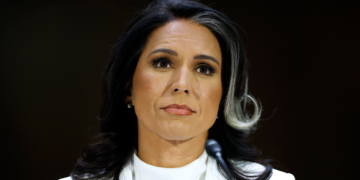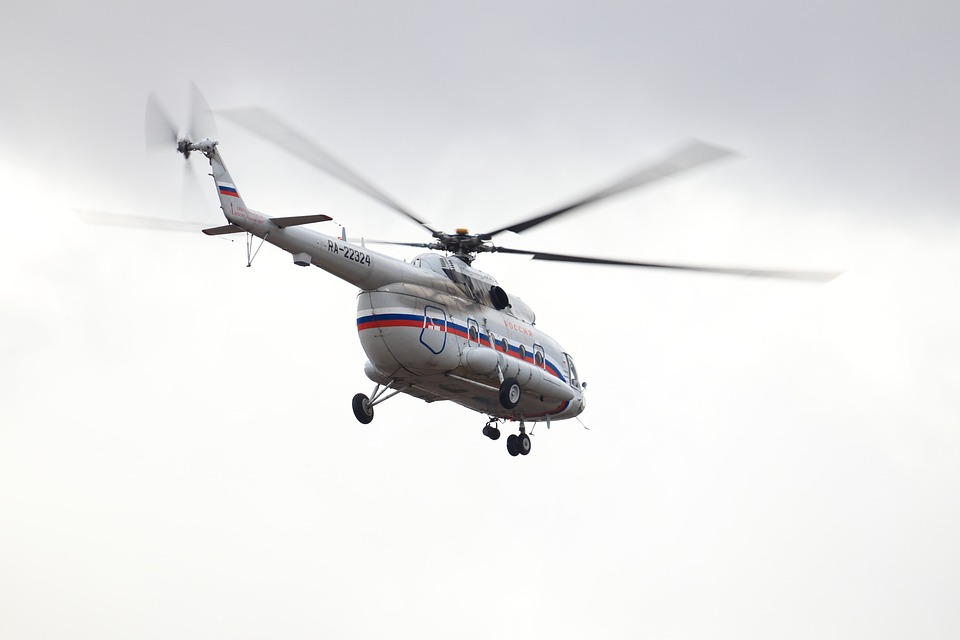Documents passed anonymously to MintPress News reveal the National Endowment for Democracy (NED), a notorious CIA front, is laying the foundations for a color revolution in Indonesia.
In February 2024, citizens will elect their President, Vice President, and both legislative chambers. Current maverick leader Joko Widodo, widely beloved by Indonesians, is ineligible for a third term, and NED is preparing to seize power in the wake of his departure. This operation is conducted despite the leaks indicating Jakarta’s foremost intelligence agency has expressly warned U.S. officials to stay put.
The paper trail is a stunning insight into how NED operates behind the scenes, from which obvious inferences can be drawn about its activities elsewhere, past and present. By the organization’s own reckoning, it operates in over 100 countries and disperses in excess of 2,000 grants every year. In Indonesia, these sums have helped extend the Endowment’s tendrils into various NGOs, civil society groups, and, most crucially, political parties and candidates across the ideological spectrum.
This broad spread bet goes some way to ensuring U.S. assets, one way or another, will emerge victorious next February. However, a veritable army of NED operatives on the ground is also primed to challenge, if not overturn, the results should the wrong people win. Personal grants – in other words, bribes – from the Endowment have already secretly been distributed to Indonesians for staging anti-government protests.
What skullduggery NED has in store for election day isn’t certain, although sparks are assured to fly. At the very least, these documents amply reinforce what Endowment cofounder Allen Weinstein openly admitted in 1991:
A lot of what we do today was done covertly 25 years ago by the CIA.”
‘THE JOKOWI EFFECT’
Joko Widodo – popularly known as Jokowi – is something of a rockstar. The first Indonesian leader not drawn from the country’s established political or military elite since its hard-won independence from the Dutch in 1949, he was born and raised in a riverside slum in Surakarta. From there, he fought to become mayor of his hometown in 2005, then governor of Jakarta in 2012, then President two years later.
Every step of the way, Widodo has battled bureaucracy and corruption while pursuing programs to deliver universal healthcare, economic growth, radical infrastructure development, and material improvements to the lives of average citizens. Such is his domestic popularity that analysts routinely speak of the “Jokowi Effect.” After the Indonesian Democratic Party of Struggle named him their presidential candidate in 2014, their vote share leaped 30% in that year’s legislative election.
Widodo’s candidacy also reportedly stimulated Indonesia’s stock market and Rupiah currency due to his sparkling political and economic record. One might think burnishing the country’s finances to such a degree through sheer force of personality would make him an ideal leader from Washington’s perspective. Yet, the President has also prioritized “protecting Indonesia’s sovereignty” and limiting overseas influence in Jakarta. Moreover, he pursues an intensely independent foreign policy, much to the U.S. Empire’s chagrin.
Widodo has encouraged leaders of Muslim states to reconcile and pushed for Palestinian independence. His Foreign Minister visits Palestine but refuses to establish diplomatic relations with Israel. He has also distributed sizable aid to oppressed Muslims abroad. Most egregiously, since Russia’s invasion of Ukraine, he flew to both countries and urged their leaders to seek peace. When Jakarta hosted the G20 Summit that year, he invited not only Zelensky but Putin to attend despite fierce Western criticism.
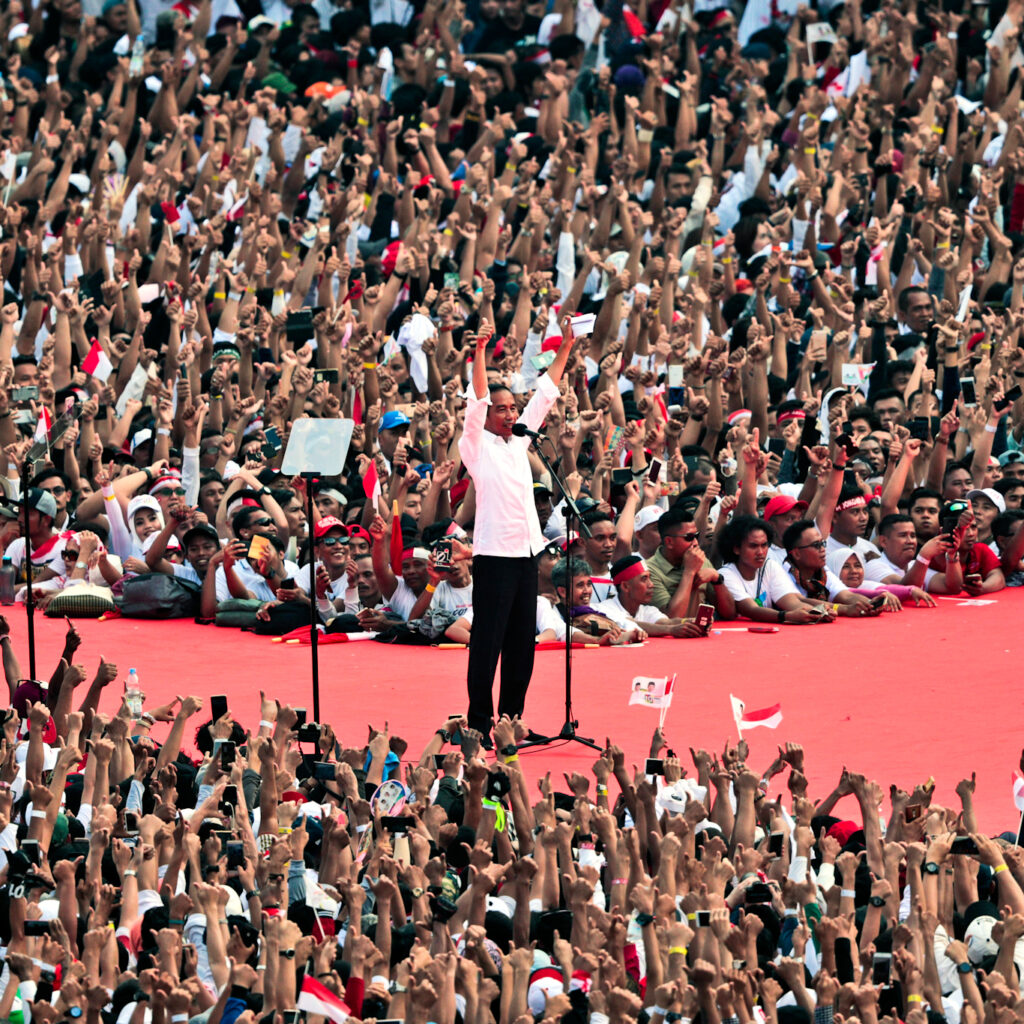
In many ways, Widodo emulates the rule of Sukarno, Indonesia’s first President, from 1945 to 1967. His policies, domestically and internationally, were explicitly anti-imperialist. At home, he prevented Western exploitation of his country’s vast resource wealth while maintaining cordial relations with both East and West and personally championing the Non-Aligned Movement, members of which eschewed both power blocs to pursue an independent path.
Sukarno’s bold refusal to bow to imperial interests made him a thoroughly marked man. In 1965, he was ousted in a blood-spattered military coup sponsored by the CIA and MI6, ushering in 30 years of an iron-fisted military dictatorship led by General Suharto. Over one million people were killed through politically motivated massacres, executions, arbitrary imprisonment, and savage repression. Even the CIA describes his purge of leftists as “one of the worst mass murders of the 20th century.”
Widodo is now preparing to leave office, his constitutionally-mandated terms over, and personal approval ratings at all-time highs. His departure creates a clean political slate, which NED is eager to fill. Mercifully, a repeat of the intelligence agency-orchestrated slaughter that brought Suharto to power decades ago appears unlikely. But the leaked documents obtained by MintPress News make clear the U.S. Empire is preparing to pull off another coup in Jakarta under the aegis of “democracy promotion.”
This has been NED’s raison d’etre since inception, in 1983. The organization was explicitly founded by senior CIA spooks and U.S. foreign policy apparatchiks to serve as a public mechanism for the Agency’s traditional clandestine support for opposition groups, activist movements and media outlets overseas, which engage in propaganda and political activism to disrupt, destabilize, and displace ‘enemy’ regimes.
NED’s malign meddling over the years is too lengthy to list here. But recently, this has included sponsoring a failed uprising in Cuba, funneling money to separatist protesters in Hong Kong, and attempting to topple the Belarusian government. Having floundered in these insurrectionary adventures is evidently no deterrent to trying again in Indonesia now.
‘PERSONAL BRANDING DEVELOPMENT’
The leaked files are weekly briefings dispatched from the Indonesian office of the International Republican Institute (IRI) back to headquarters in Washington during June, July and August 2023. IRI is a core component of NED, which typically works with another, the National Democratic Institute, on regime change operations abroad. The pair are innately linked to their respective namesake political parties at home.
These briefings provide updates on administrative issues, local political developments, staff activities, press clippings, and IRI’s progress on fulfilling the objectives of its NED grant in Indonesia “to improve the capacity of emerging political party leaders to assume leadership positions within the parties and act as agents of change in support of increased internal party democracy, transparency, and responsiveness to citizens.” The last available Endowment grant records, from 2022, show the Institute was given $700,000 for this.
Every week, IRI reported its “outreach” to “emerging leaders” in the country – graduates of NED training programs, now prominent members of dozens of political parties, and local NGOs and civil society organizations. Many are running as candidates in 2024, having been taught campaigning and voter engagement strategies and to challenge results by the Endowment.
One of IRI’s “emerging leaders” was recorded as “carrying out internal party reform in his party” and “always appearing” prominently in its ranks. He was recently trained in launching legal disputes over the forthcoming election’s results, which “resulted in his being trusted as a candidate” by the party.
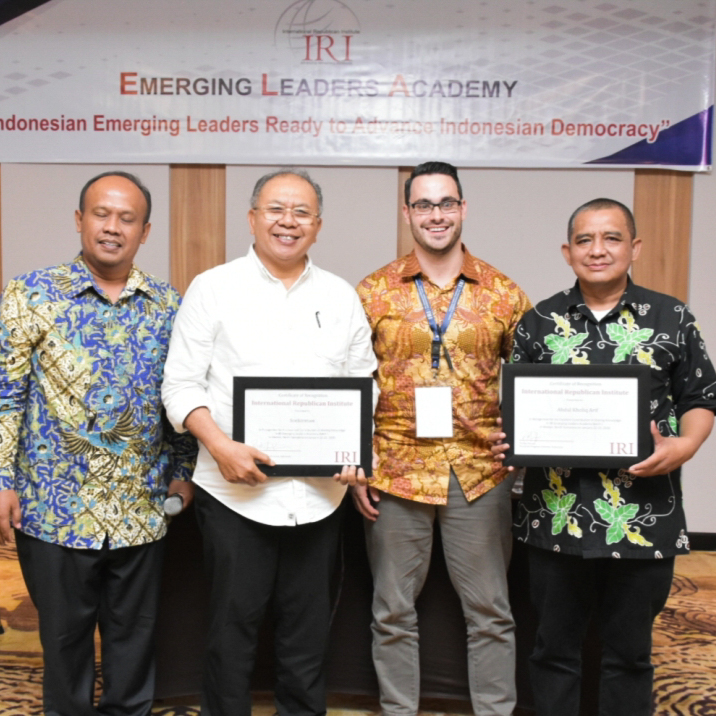
Another boasted to his IRI handlers that he “continues to socialize himself to the public regarding his candidacy either in person or through social media” and had recently appeared on popular radio and T.V. shows. He credited training provided by the NED-funded Association for Election and Democracy (Perludem) for “his personal branding development in politics” and ability to “serve as public speaker and engage with media.”
Perludem publishes regular US AID-financed journals, which “provide recommendations and references for improving electoral governance and democratic and political processes in the Asia and Pacific region.” It also convenes regular Emerging Leader Academy (ELA) events, where the individuals named in the IRI documents are groomed and learn “message development,” among other electioneering skills.
One graduate told IRI she had “started to share and disseminate information regarding her plans to run as a legislative candidate” and was “now increasingly active on social media.” With “tools she received from ELA, she hopes to attract more young voters, especially first-time voters.” Another was reported to have “again strengthened his role in the party’s internal body” and be personally “training prospective witnesses at polling stations” to monitor proceedings on election day.
Right down to the school level, youth political engagement was of evident significance to IRI and its cadre of political operatives. Accordingly, on July 1, Perdulem hosted an event, Make Election Great Again!, where attendees were taught the fine art of “identifying the strategic role of students in the 2024 election.”
IRI’s vote-meddling capabilities were significantly enhanced on July 12, when its operatives attended an event hosted by the Center for Strategic and International Studies and Google. A panel featured two opposition politicians, journalists, and researchers, who warned “dis/misinformation” could affect the 2024 election and, terrifyingly, result in a similar figure to Widodo becoming President. A local polling expert presented data from a recent survey conducted by his firm on how trust in political parties impacts voter preferences.
‘ACHIEVED MILESTONE’
One of the leak’s most tantalizing excerpts is in a briefing note from June 28 this year. It records how IRI representatives met with high-ranking members of the U.S. Embassy in Jakarta, including its Political Officer, Ted Meinhover. He “conveyed U.S. concerns” about the 2024 elections, in particular how Defense Minister Prabowo Subianto’s “electability” had “increased dramatically,” meaning he “stood the highest according to the polls.” Meanwhile, former Jakarta Governor Anies Baswedan’s ratings were “on the decline.”
Meinhover lamented how Indonesian law restricts parties with less than 20% of seats in parliament from fielding Presidential candidates. If that “threshold” were removed, “there will be more candidates in the election, and the U.S. will have more options,” he declared. Still, Washington “needs to maintain friendly relations with all parties to safeguard U.S. interests in Indonesia, no matter how the election plays out.”
Meinhover added the Embassy had “been active in outreaching” leaders of the local Labor party and Indonesia’s Trade Union Confederation “to know about their plans to protest” a law on job creation recently signed by Widodo. Fearing the legislation will “dampen foreign investor enthusiasm” in the country, “the U.S. firmly supports activities opposed to it.”
Accordingly, the Embassy secretly suggested to Labor party chiefs they could exploit “the opportunity” of Indonesia’s Independence Day on August 17 “to launch protests” against the job creation law and Meinhover’s hated “Presidential Threshold.” Strikingly, a U.S. diplomatic apparatchik present mentioned Jakarta’s State Intelligence Agency (BIN) had “recently warned” the Embassy “not to interfere” in the 2024 elections.
Meinhover said this had motivated the Embassy to “continuously support” IRI’s cloak-and-dagger activities to “further implement U.S. policies while avoiding Indonesian regulations.” So it was, a July 8 – 14 briefing noted, the Institute contacted Labor party leaders and a welter of Indonesian labor organizations – to which IRI “continuously provide small grants” – and discussed “plans to organize protests” against the job creation and Presidential threshold laws “in late July or early August.”
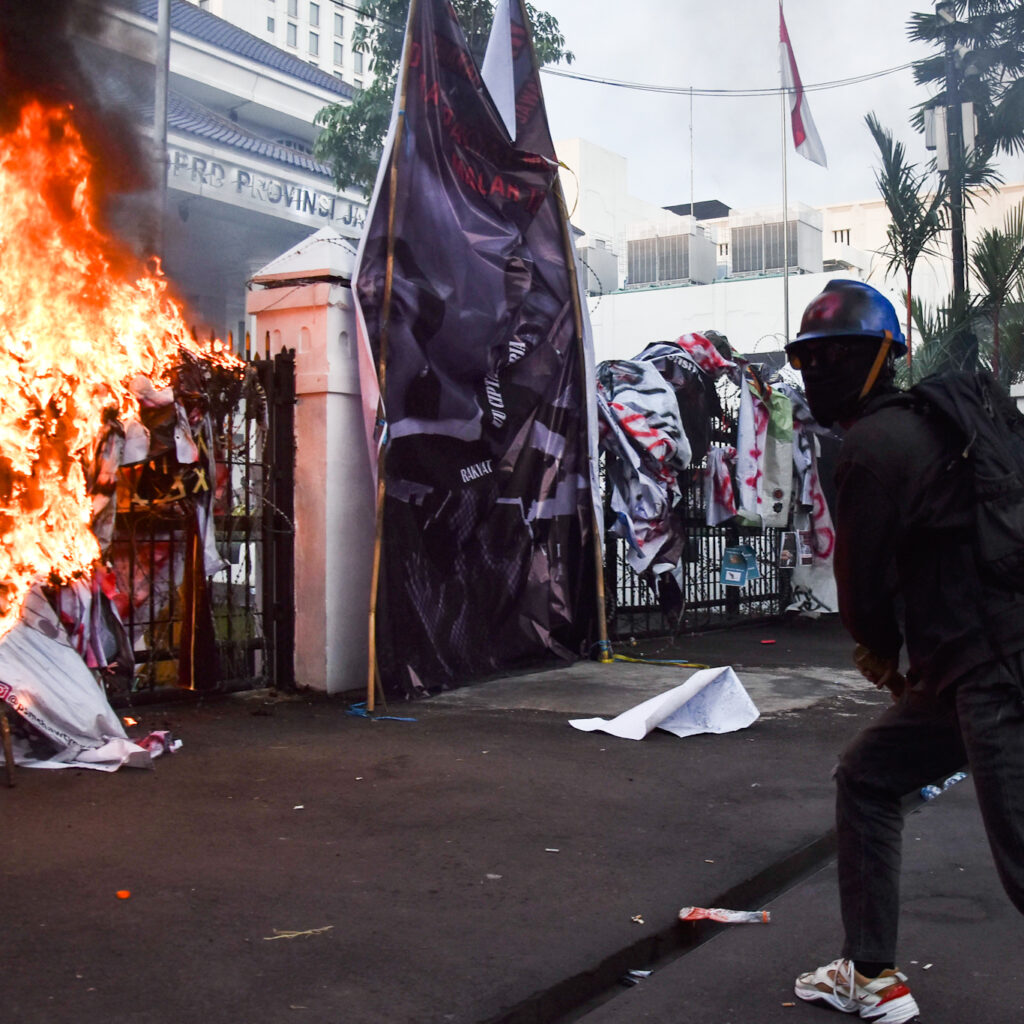
Those protests went ahead on August 9 at Jakarta’s Constitutional Court and State Palace. Local media coverage of the events was duly recorded in an IRI briefing, which also noted that the Institute “provided a third grant” of 1,000,000 Rupiah to the Pandeglang Labor party’s executive chair for the effort. They reportedly “appreciated IRI’s support for their activities.” The briefing added, “The protests went well and [were] brought to a successful close.”
A week later, Institute staffers again provided “support” to the Labor Party’s Pandeglang chapter to “successfully” protest against the two laws. The executive chair received a further personal grant of 5,000,000 Rupiahs “for this achieved milestone.” While this amounts to $330, it can hardly be considered an insubstantial sum in local terms, given that 50% of Indonesia’s population earns less than $800 monthly.
Other briefings indicate several Indonesian organizations and individuals receive direct payments from IRI for achieving specific “milestones,” Perludem among them. In a perverse irony, the February 2021 edition of the organization’s journal featured essays on topics including “political financing and its impact on the quality of democracy,”; “the urgency of preventing illicit political party fundraising,”; “a disproportionately unequal playing field: challenges to and prospects for campaign finance law”; and “accountability and transparency of political party financing” across Asia Pacific.
Eighteen months later, Perludem launched an app helping Indonesians “understand how electoral boundaries are drawn” and allowing users to “create their own versions of boundary delimitation or drawing/redrawing of electoral districts as they deem appropriate by universal standards and principles.” Who or what funded this seditious venture wasn’t stated.
‘BUDGETS ARE TIGHT’
One can only imagine the righteous furor that would erupt if documents revealing Chinese or Russian government agents, including Embassy staff, were secretly grooming politicians and civil society actors in foreign countries while covertly encouraging and bankrolling the activism of opposition parties and trade unions in conscious, deliberate contravention of national “regulations.” However, such activity is par for the course for U.S. diplomatic missions everywhere – and indeed, NED.
It’s also worth noting that the Endowment’s outlay in Indonesia is relatively modest. One weekly briefing even mentions how budgets “across IRI’s three projects” in the country “are tight for the foreseeable future.” The Institute’s Indonesian party leader training operation aside, the nature of the two other ventures is unclear from the leaked documents. But, according to figures published on NED’s website, the organization spends less than $2 million in Jakarta annually.
Usually, the sums involved are vastly higher. For example, over the 12 months leading up to Ukraine’s 2014 Maidan Revolution, NED pumped around $20 million into the country. Still, Western journalists, politicians, and pundits aggressively rubbished all suggestions that insurrectionary upheaval was anything other than an expression of popular will, resulting from surging yearning for liberalism and democracy by the overwhelming majority of citizens. They have done so ever since.
This is despite contemporary polls never showing majority Ukrainian support for Maidan, or E.U. and NATO membership; President Viktor Yanukovych remaining the most popular politician in the country until his last day in office; every actor at the forefront of the protests, including the individual who started them, receiving NED or USAID funding; leaders of U.S.-financed organizations in the country openly declaring their desire to overthrow the government in the years prior; the Maidan demonstrations being riddled with hardcore nationalists.
One might still argue many Maidan protesters were animated by legitimate grievances. Yet, the leaked trove raises serious questions about the “agency” of anyone in direct or even indirect receipt of NED funding. The papers amply show individuals and organizations on the ground anywhere can be stirred to activism at the local U.S. Embassy or Endowment chapter’s express behest at any time in return for even a small “grant.”
It is wholly inconceivable Indonesian labor groups would otherwise have protested Widodo’s job creation law or restrictions on how many Presidential candidates can run were it not for the former potentially harming Western investors and financial interests in Jakarta and the latter limiting Washington’s choice of puppets in the country. How many other anti-government agitators around the world, be they protesters, trade unionists, journalists, or otherwise, are similarly acting to “achieve milestones” agreed in secret with NED is anyone’s guess.
From Washington’s perspective, the importance of ensuring a pliant government is installed in Indonesia cannot be understated. With U.S. military chiefs openly discussing war with China in the very near future, the region must be populated with client states that can aid and abet that world-threatening effort. Similar initiatives are undoubtedly underway across the entire Asia Pacific. As such, it has never been more critical that NED’s activities everywhere are scrutinized, if not outright banned.
Feature photo | Illustration by MintPress News



